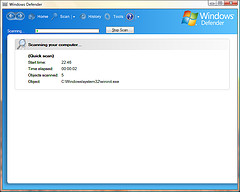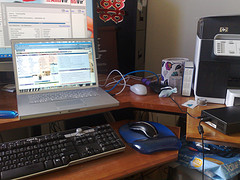
flickr.com/menza
You know you need security from spyware. But what brand of protection should you get? There are numerous extremely helpful anti-spyware programs out there. Take a peak at a few of them:
1. Windows Defender
Windows defender is an anti-spyware program you can use for free. It protects your computer against slow performance, annoying pop-ups, and other threats brought about by spyware. With its “Real Time Protection,” Windows Defender can check and suggest actions that remove spyware. It even has a new interface that cuts down the interruption and makes user time more productive. Read more . . .
